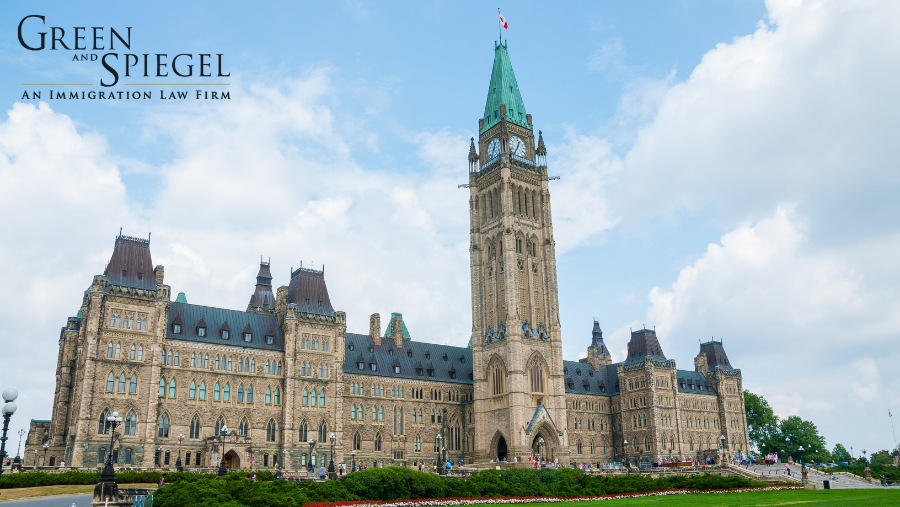
Family reunification is one of the main pillars of immigration to Canada and an underlying principle that guides all immigration policy decisions. For both Canadians and newcomers submitting an application for immigration to Canada on the basis of family reunification, it is important to understand the ways in which Immigration, Refugees and Citizenship Canada (IRCC) delivers on this promise to reunite families, the most relevant being Spousal Sponsorship applications.
If you and your family members are considering pursuing a Family Class Sponsorship application, understanding the program requirements and processing instructions is critical to ensuring a successful application.
Who can sponsor
To sponsor an eligible partner, the sponsor must meet the following eligibility requirements, including the following:
- Be at least 18 years old;
- Be a Canadian citizen, permanent resident, or a person registered in Canada as an Indian under the Indian Act;
- Be residing in Canada, unless the sponsor is a Canadian citizen who can show intention to relocate to Canada upon the sponsored relative becoming a permanent resident;
- Be able to prove they can provide for the basic necessities of their partner (and any accompanying dependents), including not being in receipt of social assistance for reasons other than a disability; and
- Not be subject to any bars to sponsorship.
Who can be sponsored
An eligible sponsor can sponsor their spouse, common-law partner, or conjugal partner, regardless of gender. Each of these categories of Family Members have specific criteria which must be shown:
- Spouse: the couple must prove they are legally married. Marriages will be recognized when the marriage was either (1) legally performed in Canada, or (2) legally recognized in the county where it took place and in Canada.
- Common-law partner: the couple must prove they’ve been living together for at least 12 consecutive months in a conjugal, or “marriage-like” relationship.
- Conjugal partner: the applicant must be living outside Canada and the couple must prove that (1) there is a significant degree of attachment between them, and (2) they’ve been in a genuine relationship for at least 12 months where marriage or cohabitation isn’t possible. This category is often used where there is a legal impediment to marriage or establishing common law status.
While the assessment of the of legality of a marriage can be determined based on the laws of Canada and the jurisdiction where the marriage was performed, the assessment of common law and conjugal partner status is a question of fact, determined following an extensive review of evidence demonstrating the relationship. If the officer has concerns about the genuineness of a relationship, the couple may be invited to address the concerns by providing additional documents, or by attending an interview either together, or separately
A sponsor may also sponsor their partner’s children who are under 22 years of age who are not married or in a common-law relationship,
Once a couple has gathered the documents required in support of a spousal sponsorship, an important consideration is which sponsorship route to pursue:
Family Class: Outside of Canada Sponsorship
Canadian citizen sponsors living abroad must demonstrate that they will live in Canada when their partner becomes a permanent resident. Permanent resident sponsors must reside in Canada. If the applicant is in Canada, they must have valid status.
At the time of this blog, the average processing time for a Family Class Sponsorship application (overseas and with the intention to live outside of Quebec) is approximately 10 months, although this standard does not apply to complicated cases. Once the sponsor’s eligibility is assessed, the application is generally sent to the responsible visa office abroad for processing. As certain visa offices are more well versed in local customs and practices, additional documents may be requested at this stage.
In this scenario, there is generally a right to appeal a refusal to the Immigration Appeal Division of the Immigration and Refugee Board. This appeal process is beneficial as applicants can provide reasons why the negative decision was incorrect.
Spouse or Common-Law Partner in Canada Class (SCLPC): Inside of Canada Spousal Sponsorship
This application requires both the sponsor and their partner to be residing together in Canada. While, under the SCLPC a partner must have valid immigration status at the time of submission, IRCC has enacted a Public Policy to overcome this requirement for certain foreign nationals.
At the time of this blog, the average processing time for the SCLPC application (living outside of Quebec) is approximately 28 months.
Under this category, if the application is refused, there is no right to an Appeal. An applicant can seek leave for judicial review from the Federal Court. If the Federal Court decides to review the case, it will assess the reasonableness of the decision, a much more limited scope than an appeal to the IAD and the decision would not lead to the reversal of a negative decision.
Applicants Destined for Quebec
Note that under both categories, couples intending to reside in the Province of Quebec are subject to an additional assessment by the Ministry of Immigration, Francisation and Integration and processing times are longer.
Work Permit Options
There are options for applicants located in Canada under either category to apply for an open work permit while their application is pending. Applicants must meet specific criteria but do not require a job offer.
Next Steps
Although the government intends to reduce permanent resident targets starting in 2025, the Minister of Immigration, Refugees and Citizenship continues to support processes that reunite families and loved ones, including spouses. In 2025, nearly 24% of overall permanent resident admissions will be allocated to the family class. [3]
While generally the preferred pathway forward for those with a Canadian partner continues to be the spousal sponsorship application, this application remains a document-heavy process with many nuances.
To avoid delays or refusals under this category, applicants should ensure they have a proper understanding of the requirements and process, which they can gain by contacting a Green and Spiegel lawyer.
[1] Immigration, Refugees and Citizenship Canada. (2023, May 26). Canada is reuniting loved ones through new immigration measures new measures also address labour shortages … Canada.ca. https://www.canada.ca/en/immigration-refugees-citizenship/news/2023/05/canada-is-reuniting-loved-ones-through-new-immigration-measures-new-measures-also-address-labour-shortages-in-canada.html
[2] Immigration Refugees and Citizenship Canada. (2018, March 12). Government of Canada. Canada.ca. https://www.canada.ca/en/immigration-refugees-citizenship/corporate/mandate/policies-operational-instructions-agreements/immigration-refugee-protection-act-spousal-policy.html#3
[3] https://www.canada.ca/en/immigration-refugees-citizenship/news/2024/10/20252027-immigration-levels-plan.html.






